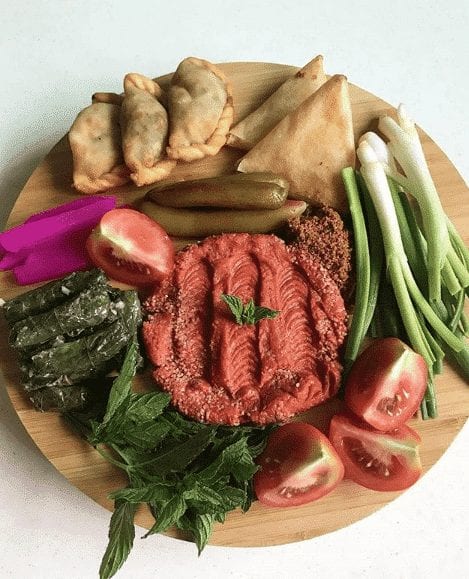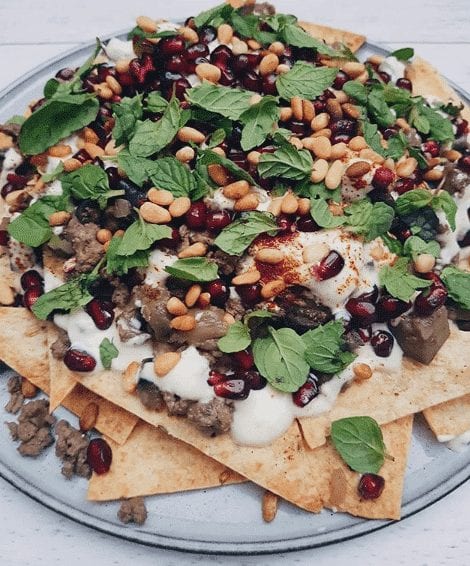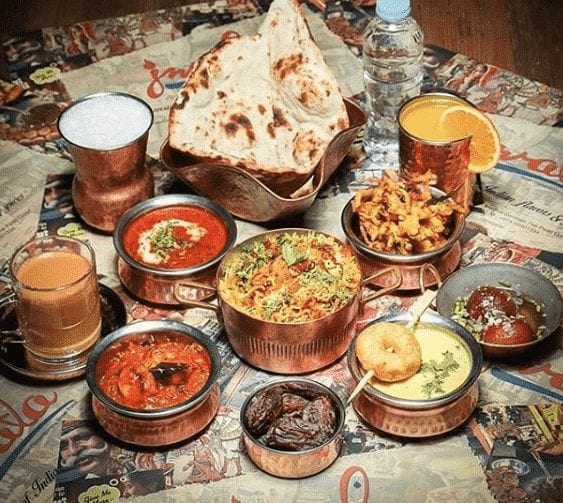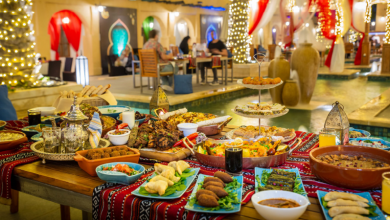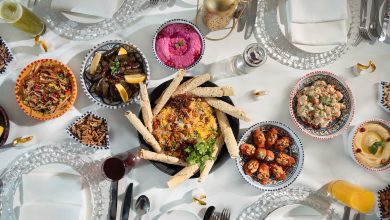What you eat, or choose not to eat, during Ramadan makes a big difference to your energy levels. After fasting all day, there is often a temptation to overeat and load up on sugary beverages during iftar and suhour, but you could be doing yourself a disservice.
iftar and suhoor meals should be well balanced and contain items from each food group, such as vegetables, cereals, meat, dairy products and fruit.
“Fasting during Ramadan can improve one’s health, but only if done in proper manner. If not, it can cause more harm than good. It is important to have self-control when you see a spread of appetising food. The key is to remember that Ramadan is a month to reap rewards and benefits, and increase your spiritual connection,” Ali says.
“Suhoor needs to be wholesome to provide enough energy to last during the long hours of fasting. It is important that the food you consume keeps you hydrated, so pay careful attention to the selection of food items during suhour.
“And while suhoor is important, eating habits during iftar cannot be ignored. Hence, it is important during Ramadan to break the fast with a balanced diet ensuring that the essential nutritional needs of your body are met. These include sodium and potassium which are lost due to sweating, especially during summer.”
Here are her suggestions for foods to eat and avoid during iftar and suhoor.
What to eat during iftar
Potassium-rich fruits: Potassium is necessary for the proper function of many of your body systems. Some of its key roles include minimising cramps and maintaining fluid and electrolyte balance in the body. Foods that are high in potassium include beans, dark leafy greens, potatoes, squash, yogurt, avocados, mushrooms, and bananas. Dates are nutrient powerhouses that are a good source of potassium and an excellent food to break your fast. A date not only helps you hydrate quickly, but gives you instant energy to make you feel rejuvenated after the long-hours of fasting.
Sufficient fluids: Drink as much water or fruit juices as possible between iftar and bedtime to avoid dehydration.
Raw nuts: Almonds contain good fats which are essential, particularly when your body has been craving fats after the long hours of fasting. Raw nuts are perfect for iftar as they help you feel full and in control, without the need to binge.
Hydrating vegetables: Cucumbers, lettuce and other vegetables are high in fibre and water. They not only help your body feel cool, but are also a great choice for keeping your skin healthy and avoiding constipation during Ramadan.
What to avoid during iftar
Carbonated drinks: Avoid drinking processed beverages and carbonated drinks, which are usually high in sugar, increasing your risk of overweight and obesity, and can cause bloating and gas, leading to indigestion. Stick to regular water and coconut water to quench your thirst.
High-sugar foods: High-sugar foods as sweets and chocolates should be avoided as they contain very little nutritional value and are high in calories. They contribute to weight gain and can lead to health issues if consumed every day.
Fried-foods: Greasy and fried food, such as fried dumplings, samosas, pastries and oily curries, should be avoided as they are loaded with fat and stored in the body as fatty tissue. Eating fatty foods after long hours of fasting causes acidity and indigestion.
What to eat during suhour
Protein-rich food: Eggs are high in protein and other nutrients. They not only help you to stay full for longer, but can be made in several ways to suit your tastes.
Fibre-rich food: Oatmeal is rich in fibre, which your body needs during suhour. Soluble fibre turns to gel in the stomach and slows digestion, which helps to lower cholesterol and blood glucose, and keep you energised throughout your fast.
Calcium and vitamin-rich food: Rich in calcium and protein, dairy products are a great source of nutrition. Opt for a yoghurt smoothie or choose a vanilla and honey milkshake to stay full and hydrated throughout the day.
What to avoid during suhour
Simple or refined carbohydrates: These foods, such as sugars, white flour, pastries, donuts and croissants, provide satisfaction for only three to four hours and are low in essential nutrients.
Salty food: An imbalance of sodium levels in your body makes you very thirsty while fasting, so try to avoid salted nuts, pickles, chips and food that contains soya sauce.
Caffeinated drinks: Coffee has caffeine which leads to insomnia and restlessness. In addition, it doesn’t hydrate and keeps you longing for water the whole day.
أفضلُ فطورٍ في رمضان تتميّزُ وجبة الإفطار في رمضان بالكثير من الطّقوس والأطباق الخاصّة بها، والتي يقوم غالبيّة النّاس بتحضيرها، حيث غالباً ما يتواجد التّمرُ، والسّمبوسك، والفتّوش، والشّوربات بشكلٍ يوميّ في موائد الإفطار، بالإضافة إلى الأطباقِ الرّئيسيّة الأخرى، ولكن قد لا تُعتبر وجبة الإفطار التي تحمل جميع هذه الأطباق وجبةً مثاليّة، إذ يُمكن أن ينتهيَ الصّائم من هذه الوجبة بمعدةٍ مُتخمة بعد تناولِ عددٍ كبيرٍ من السّعرات الحراريّة، والدّهون، والنّشويات المُكرّرة، والتي يُمكن أن تضرّ بالصّحة، وتسبّب زيادةً بالوزن. للحصول على أفضل وجبة إفطار يجب أن تُعوِّض هذه الوجبة الطّاقة التي يفقدها الصّائم وأن تمنحه النّشاط، كما يجب أن تُعوّض السّوائل وتُشعره بالشّبع، وذلك دون أن تسبّب الشّعور بالتّخمة، وأن تمنحَ احتياجات الجسم اليوميّة من العناصر الغذائيّة، مع ضرورة استكمال ما قد يكون ناقصاً فيها من العناصر الغذائيّة في الوجبات التي تليها بين الإفطار والسّحور ووجبة السّحور. يُمكن أن تتمثّل وجبة الإفطار المثاليّة بالبدء بتناول ثلاث تمرات، حيث يمنح التّمر الطّاقة السّريعة للجسم بسبب ما يحتويه من سكريّات بسيطة، كما أنّه يحتوي على الألياف الغذائيّة التي تُساهم في الشّعور بالشّبع، ومحاربة الإمساك، كما أنّه يمنح الفيتامينات والعناصر المعدنيّة التي يحتاج الصّائم إلى تعويضها، لا سيما البوتاسيوم
،[٢] وبعد ذلك يُساهم تناول كوب من الماء في استعادة النّشاط والطّاقة أيضاً، وفي تعويض نقص السّوائل الذي يصيب الصّائم، كما أنّه يُساهم في شُعوره بالشّبع.
[٣] تحتلّ الشّوربة مكاناً رئيسيّاً في وجبة الإفطار، حيث تُعوّض السّوائل التي يحتاجها الجسم، ومن أطباق الشّوربة الصّحيّة التي يمكن تناولها في وجبة الإفطار: شوربة العدس أو شوربة الخُضار المحضّرة بكميّات بسيطة من الزّيت، حيث تمنحُ هذه الشّوربات الألياف الغذائيّة الهامّة للشّعور بالشّبع، والتي تمنح الكثير من الفوائد الصحيّة. تحتوي وجبة الفطور الصحيّة أيضاً على الخضروات، والتي يُمكن تناولها في السّلطات أو الشّوربات، وهي تمنح الفيتامينات والمعادن والألياف الغذائيّة، كما أنّها تحتوي على مصادر صحيّة للبروتينات اللّينة، كالبقوليّات واللّحوم والدّواجن منخفضة الدّهن، بالإضافة إلى النّشويات الصحيّة، كتلك االموجودة في الحبوب الكاملة والبقوليّات، كما يُمكن أيضاً أن تحتوي على اللّبن أو الحليب منخفض الدّهن. يجب أن يتمّ تناول كميّات مُعتدلة من جميع أطباق وجبة الإفطار حتّى لا يشعر الإنسان بالتّخمة أو يسبّب لنفسه تلبّكاً في الجهاز الهضميّ، وللحصول على أفضل ما يُمكن من وجبة الإفطار وتنظيمها بشكلٍ جيّد مع بقيّة الوجبات يُمكن الاستعانة بأخصّائي التّغذية.
